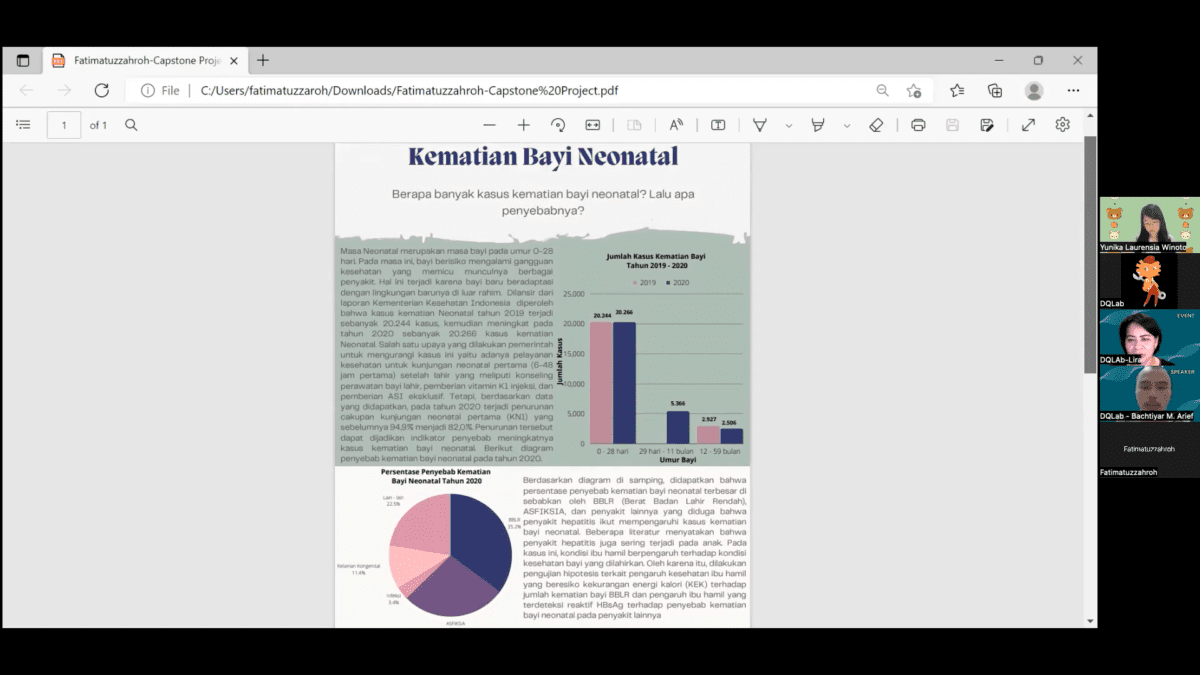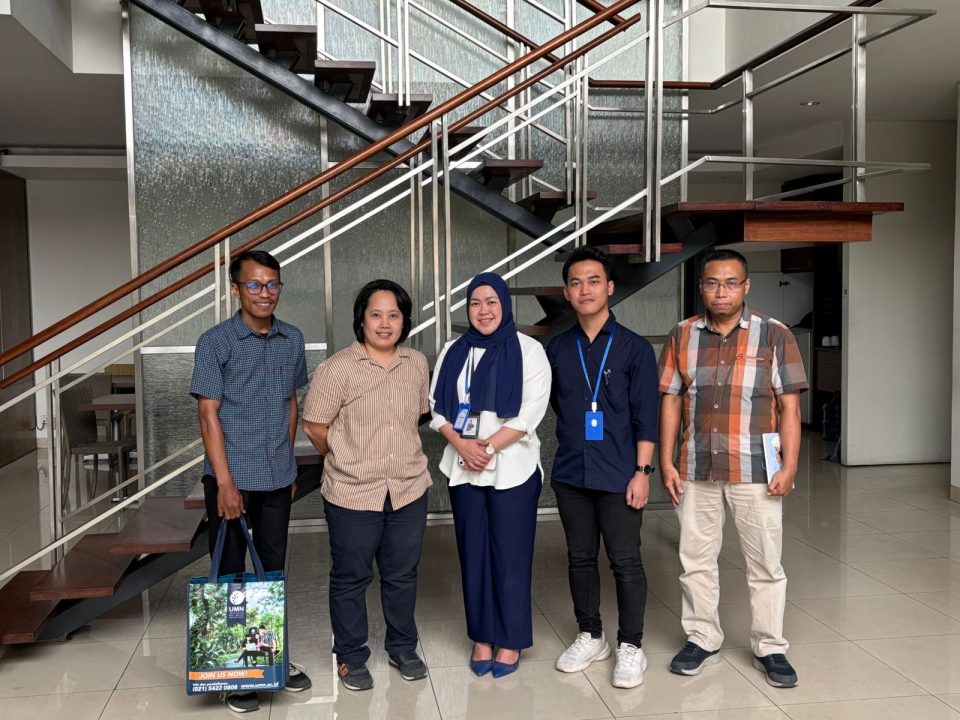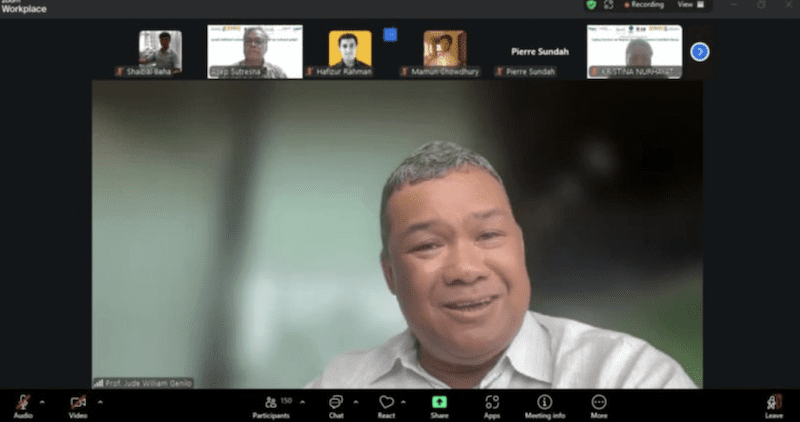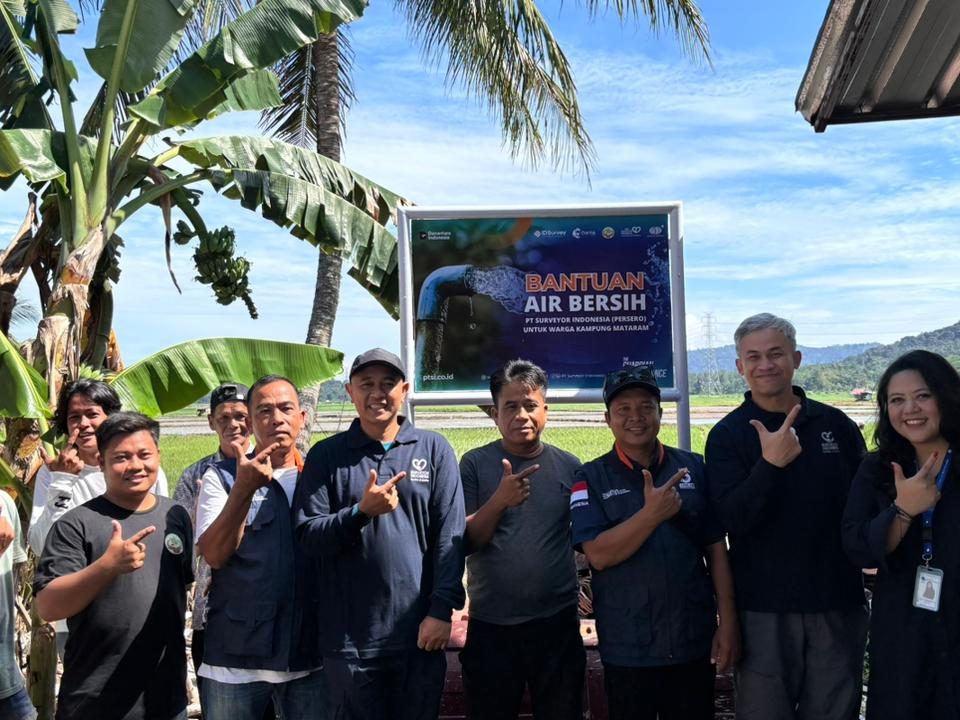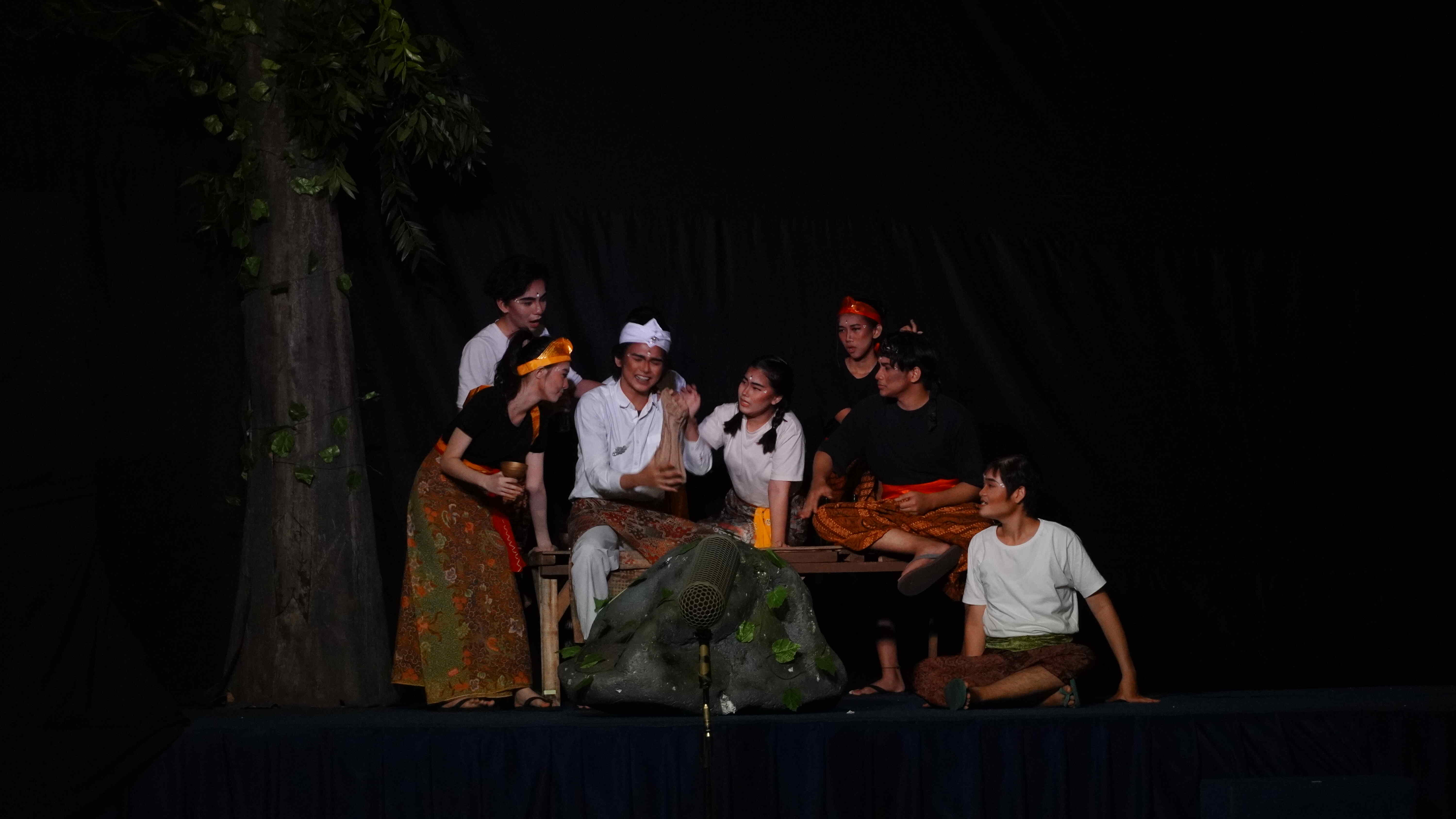
Witnessing the On-Stage Fun of UMN’s Teater Katak
July 18, 2022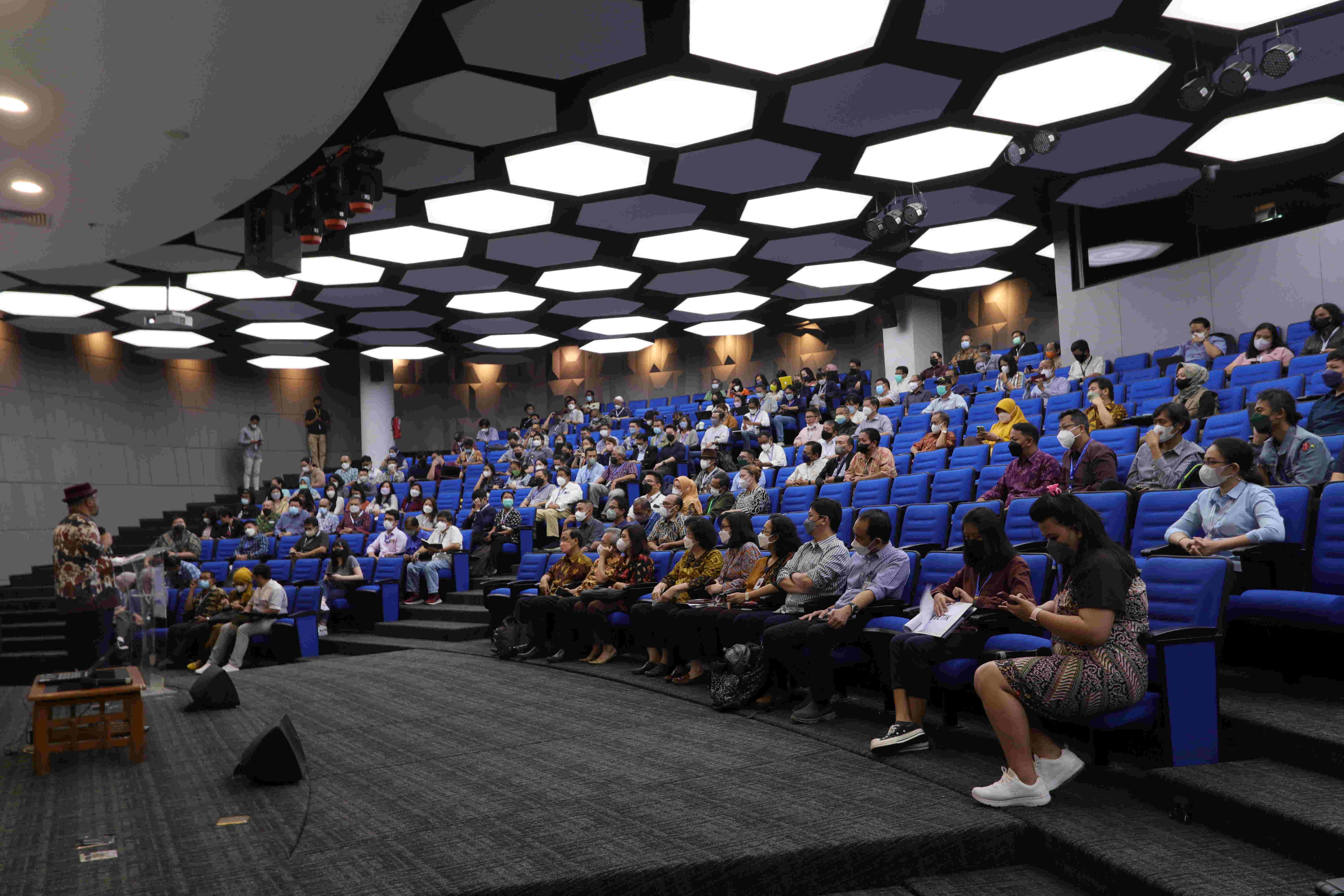
UMN Holds Academic Meeting Welcoming the Odd Semester 2022/2023
July 27, 2022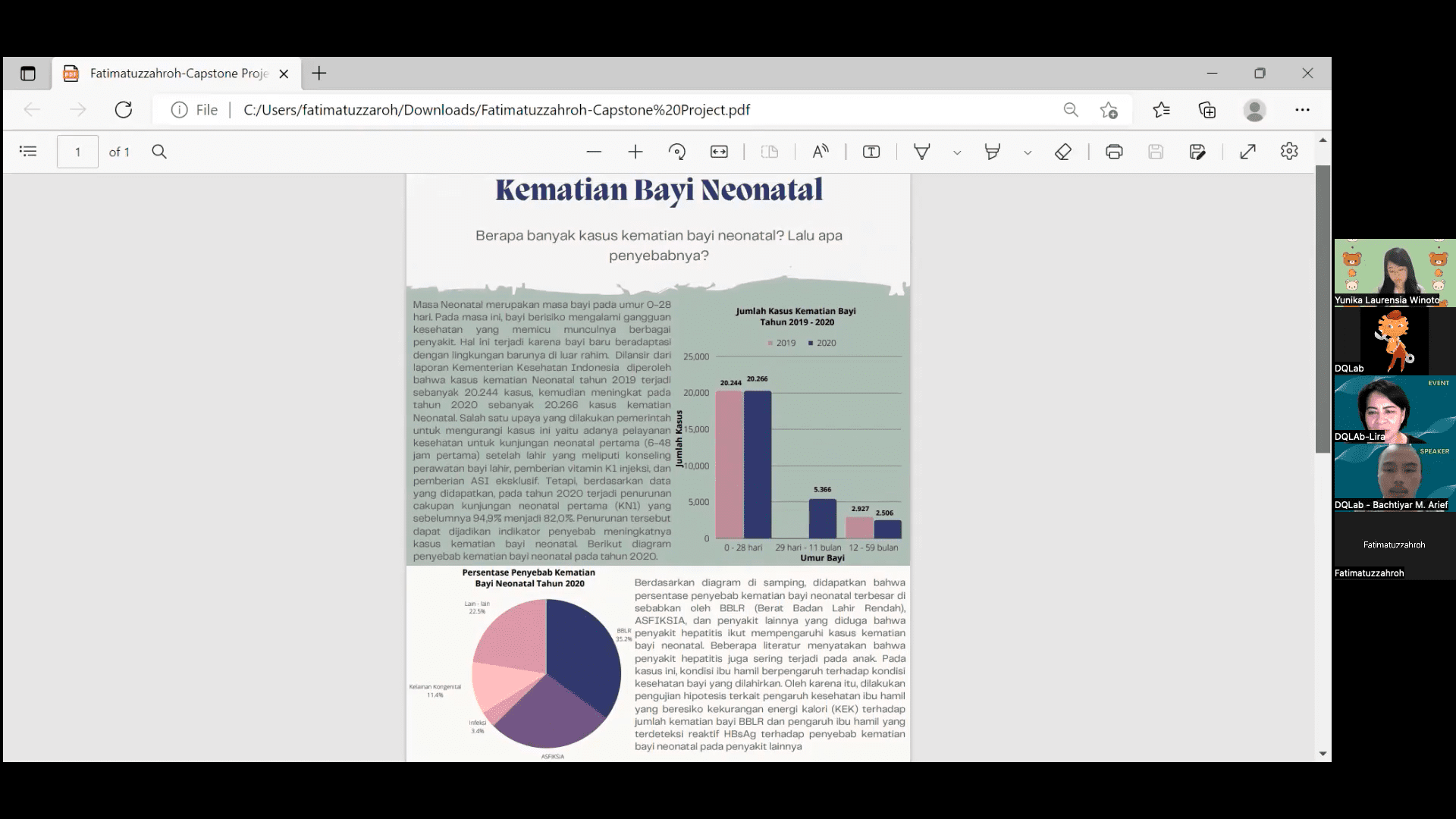
Learn Data Storytelling and Data Visualization with DQLab x BUMA. (doc. DQLab)
DQLab and BUMA collaborated and conducted an event called the “Capstone Project DQLab x BUMA” for prospective data practitioners. The event aims to teach participants about storytelling and data visualization. The Capstone Project invited speakers Yunika Laurensia, a Data Analyst at Tokopedia, and Bachityar Muclis Arief, a Data Engineer for the DKI Jakarta Government. One of the participants, Fatima Tuzzahroh, was also invited to share her work on infant mortality cases in Indonesia.
The event discussed infographics about “Neonatal infant mortality,” related to the number of infant mortality cases. “Neonatal” is a period where the baby is –28 days old. In that period, babies are at high risk of being infected with diseases because, at that age, babies start adapting to their surroundings. According to a data by the Ministry of Health, the number of infant mortality cases in 2019-2020 recorded the largest deaths in infants ages 0-28 days, with an increased case from 20,244 to 20,266 cases.
The government provides health services to newborns through the first neonatal visit” (there are three neonatal visits). These services include counseling, giving vitamin K1, and exclusive breastmilk. However, based on data in 2020, the first neonatal visit decreased from 94.9 percent to 82.0 percent.
Fatima’s data shows that the largest infant mortality is caused by low birth weight (LBW). The second is caused by asphyxia, a condition with a lack of oxygen in the birth process. The third is caused by other diseases like Hepatitis because it is a disease possibly transmitted from the baby’s parents. Pregnant women with the hepatitis B virus can pass it on to their babies. Hence, it shows that the mother’s condition also affects the baby’s condition.
The first hypothesis presented by Fatima is that pregnant women who are chronically deficient in energy or nutrition will be at risk of infant mortality. Following the data presented by Fatima, the correlation between LBW and the mother’s nutritional status correlates 0.91. This means that the more mothers at risk of chronic energy deficiency, the more infant deaths caused by LBW. In the second hypothesis, Fatima correlated pregnant women who detected various hepatitis with other diseases, and it was found that the higher the number of mothers infected with the hepatitis B virus, the higher the number of neonatal deaths.
Fatima provides a solution for the government to assist in the form of providing nutritious food to pregnant women who are chronically deficient in energy, as well as ensuring that the food is truly nourishing. Second, the government needs to anticipate other diseases that are thought to affect neonatal infant mortality, such as hepatitis B. The government can expect this by providing immunizations to newborn babies.
“Overall it’s (the presentation) okay, the plot placement is also easy to understand. The material is also interesting because this is my first time hearing the term ‘neonatal.’ So I gained new knowledge,” Yunika said.
“I agree with Yunika, the problem, information, solution, and insight conveyed are clear. But first, I want to say to the rest of the participants please appreciate yourself, and don’t feel inferior about your work. Show that this is the greatest effort you can put into it. If there are criticisms and suggestions from me, Ms. Lira, Ms. Yunika, or others, it is intended to be constructive. So don’t look down on yourself and believe in yourself,” Bachtiyar said.
“I feel grateful, fun, and happy, because of the opportunity to take part in this training, and have direct discussions with the experts even though they are tired because the training is done at night (after working hours). But honestly, all of this has paid off with the incredibly useful knowledge,” Fatima said.
In the world of data, good communication and storytelling balanced with knowledge of data science and data visualization are essential. DQLab can be an option for learning data science and data storytelling.
Want to take part in Corporate Training like Fatima? Let’s sign up via this link, or you can contact DQLab Business Development here.
By Agnes Nurlisa | DQLab
Kuliah di Jakarta untuk jurusan program studi Informatika| Sistem Informasi | Teknik Komputer | Teknik Elektro | Teknik Fisika | Akuntansi | Manajemen| Komunikasi Strategis | Jurnalistik | Desain Komunikasi Visual | Film dan Animasi | Arsitektur | D3 Perhotelan , di Universitas Multimedia Nusantara. www.umn.ac.id

